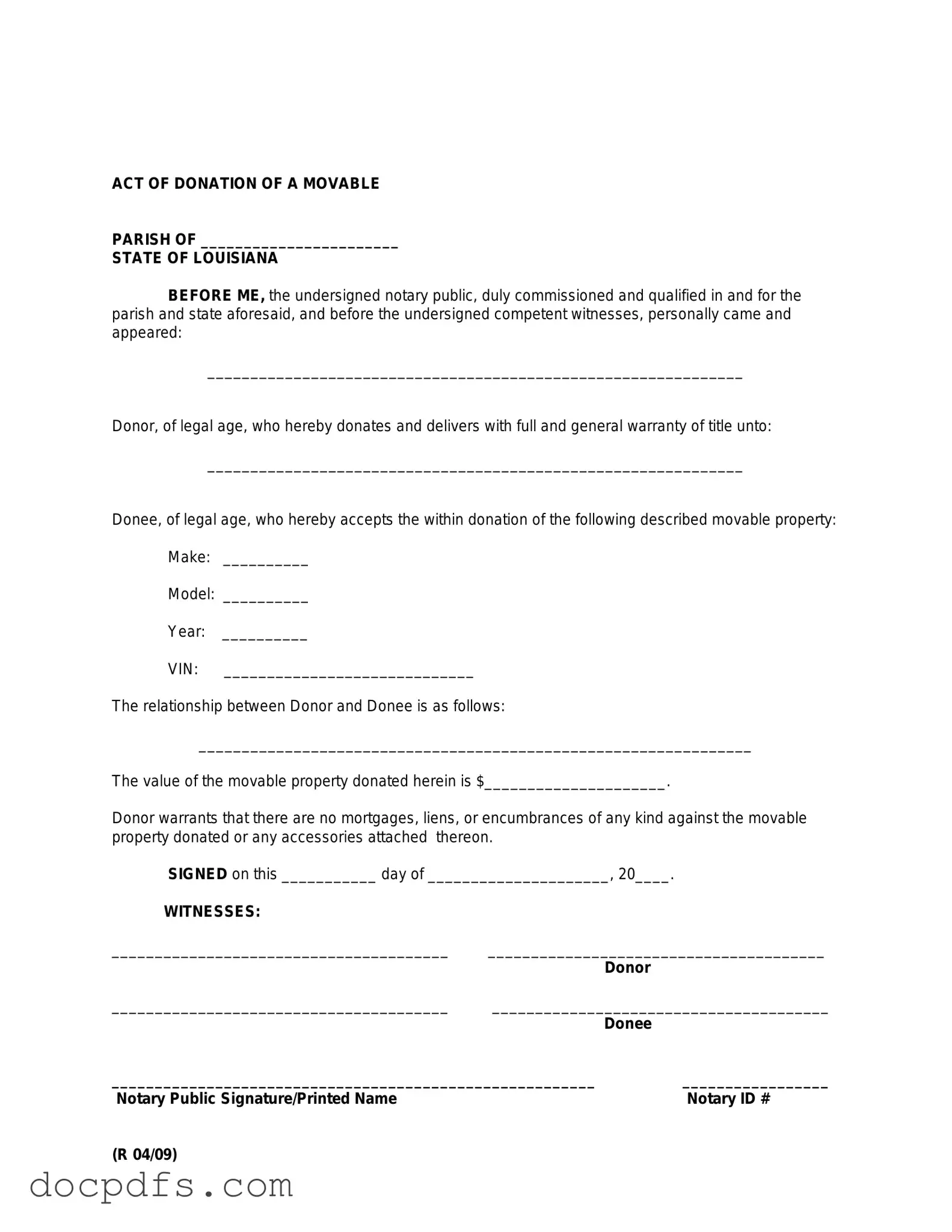Louisiana act of donation Template in PDF
The Louisiana Act of Donation form is a legal document used to transfer ownership of property or assets from one person to another without any payment involved. This form is essential for ensuring that the donation is recognized and legally binding in the state of Louisiana. Understanding how to properly complete and file this form can help avoid potential disputes and ensure a smooth transfer process.
Open Louisiana act of donation Editor Now

Louisiana act of donation Template in PDF
Open Louisiana act of donation Editor Now

Open Louisiana act of donation Editor Now
or
⇓ Louisiana act of donation
Finish this form the fast way
Complete Louisiana act of donation online with a smooth editing experience.